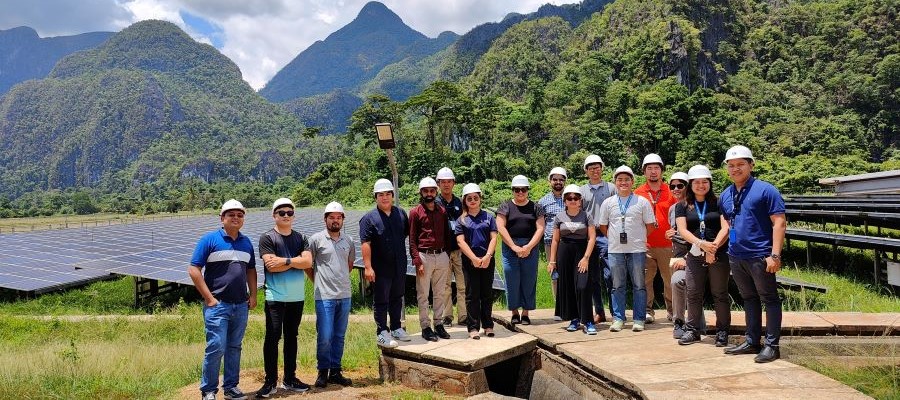
The Republic of the Philippines aims to reduce greenhouse gas (GHG) emissions by 75% by 2030 as compared to 2020 levels, as outlined in its Nationally Determined Contribution (NDC) to the UNFCCC.
With the energy sector being crucial to achieving these goals, the country’s key policies and programmes focus on enhancing renewable energy policies and frameworks, with plans to increase the nation’s renewable energy capacity to at least 20,000 MW by 2040.
To support these efforts, the Global Climate Action Partnership (GCAP) and the Asia LEDS Partnership (ALP) are providing technical assistance to the Philippines' Department of Energy (DOE). As part of the initiative, an ALP-GCAP delegation conducted a site visit from May 20 to 23, 2024 to offer targeted support and training. The delegation included representatives from the ALP, the National Renewable Energy Laboratory (NREL), and the US Department of State.
Key activities during the visit included training power sector stakeholders on the Sienna model, an open-source tool for power sector planning; providing an overview and training on an energy efficiency investment tool developed by the ALP with NREL's support; discussions with the Climate Change Commission (CCC) of the Philippines on collaboration opportunities related to the NDC and energy planning; and meetings with power generation companies and electricity utilities in the Palawan islands to understand local power sector operations and challenges.
The discussions on the Sienna model focused on how it could support the Philippines in achieving its energy and decarbonisation goals, particularly through funding and policy initiatives, and the potential integration of the model into various energy portfolios and projects. The training on the model investigated various decarbonization scenarios for the Palawan islands. Virtual training sessions on the Sienna model, specifically tailored for stakeholders in the power sector, are being planned.
The training on the energy efficiency tool focused on its purpose, functionality and benefits, and guided the participants on tailoring it to suit Philippine-specific parameters and scenarios.
The ALP- GCAP delegation team also visited power plants in the Palawan Islands operated by Delta P Inc. and DMCI Power Corporation, and a hybrid microgrid operated by Sabang Renewable Energy Corporation, which integrates solar PV, diesel generators, and battery storage to provide reliable electricity.
The ALP-GCAP is committed to supporting the transition to renewable energy in the Palawan islands. Furthermore, the ALP will support the Philippines in its comprehensive efforts to decarbonize the energy sector and achieve sustainable energy goals.